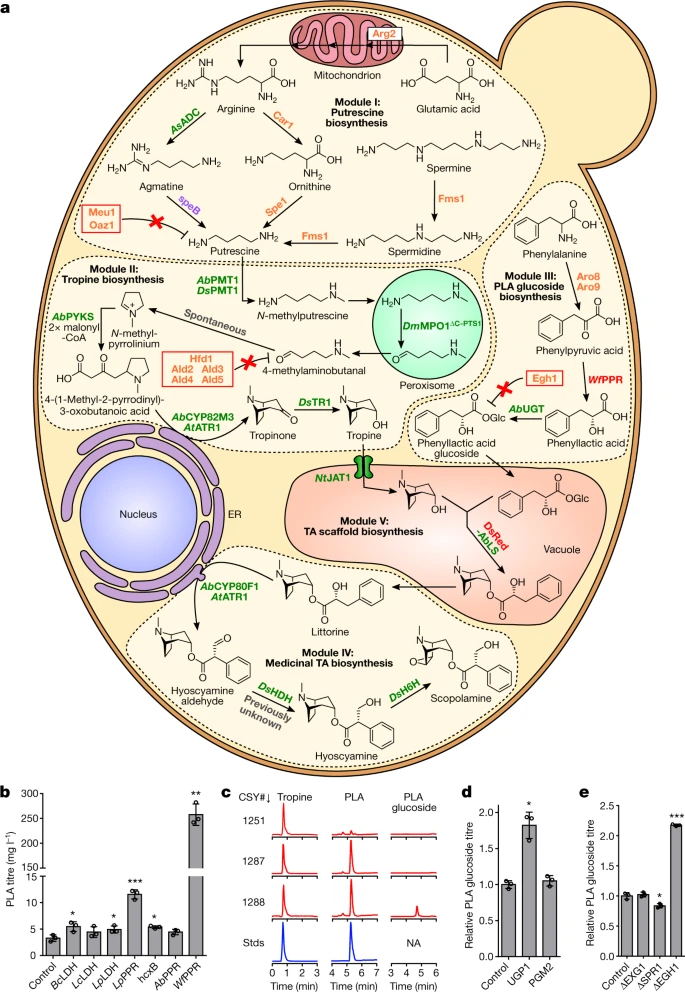EurekAlert September 2, 2020
A team of researchers in the US (Stanford University, industry) engineered baker’s yeast to produce the medicinal alkaloids hyoscyamine and scopolamine, starting from simple sugars and amino acids. They combined functional genomics to identify a missing pathway enzyme, protein engineering to enable the functional expression of an acyltransferase via trafficking to the vacuole, heterologous transporters to facilitate intracellular routing, and strain optimization to improve titres. Their integrated system positions more than twenty proteins adapted from yeast, bacteria, plants, and animals across six sub-cellular locations to recapitulate the spatial organization of tropane alkaloid biosynthesis in plants. Once scaled the biosynthesis platforms can enable robust and agile supply of essential medicines…read more. Open Access TECHNICAL ARTICLE

Engineered biosynthetic pathway for de novo production of scopolamine in yeast and optimization of PLA-glucoside biosynthesis. Credit: Nature (2020)